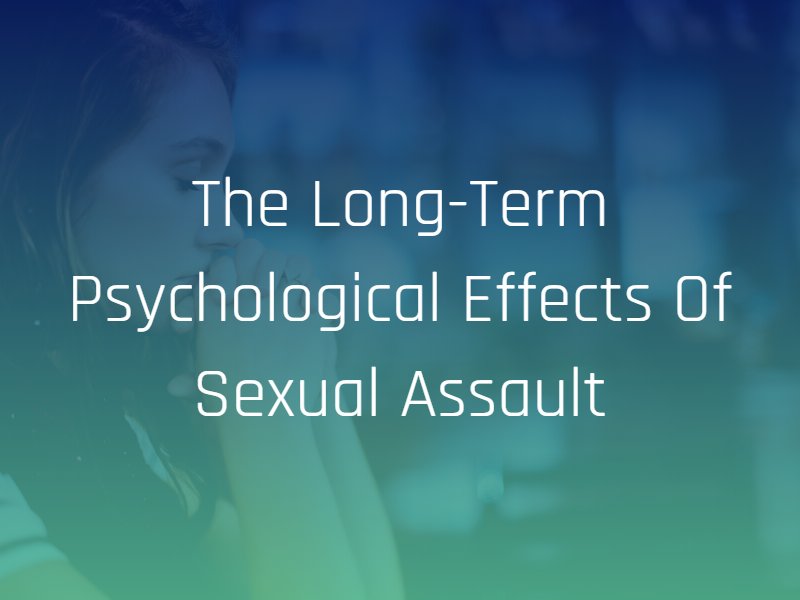Sexual assault can impact a survivor physically and emotionally. In fact, sexual violence survivors often experience significant psychological impacts, both in the short term and in the long term. These effects can lead to the development of unhealthy coping mechanisms, substance abuse, and mental illnesses such as Post-Traumatic Stress Disorder (PTSD), anxiety, and depression, impacting how a survivor experiences his or her daily life.
#1: Depression
Depression is a mood disorder that involves feelings of sadness and hopelessness, and is a common long-term effect that sexual assault survivors experience. These depressive thoughts and feelings can interrupt a survivor’s regular thoughts, behaviors, and relationships with others.
Depression is not a sign of weakness — it is incredibly common in the United States, with an estimated 17.3 million adults experiencing depression in 2017. While depression can make certain activities difficult and reduce the enjoyment of life, survivors can treat this condition through medication, therapy, and counseling.
#2: Post-Traumatic Stress Disorder
PTSD is another common psychological effect of sexual assault. Commonly associated with military members, a person can develop PTSD after a traumatic event — and sexual assault qualifies as a type of trauma. There are three main symptoms of PTSD.
- Re-experiencing the trauma through intrusive thoughts, flashbacks, and dreams
- Changing behaviors or actions to avoid scenarios that remind the survivor of the traumatic event
- Feeling on edge constantly, experiencing insomnia, exhibiting agitation, and other signs of hyper-arousal
Living with PTSD can be difficult and interfere with daily life. A survivor may feel like he or she is in constant danger, and feel heightened symptoms of anxiety, stress, and fear. However, many treatment options are available for people with PTSD, including service dogs, therapy, and medication.
#3: Substance Abuse
The aftermath of sexual assault can lead survivors to develop unhealthy coping mechanisms, including reliance on substances such as drugs and alcohol. Survivors may use alcohol or drugs to feel better, relieve the pain associated with sexual assault, or to numb themselves. A lack of an effective support system and confusion may also lead to substance abuse.
Substance abuse can lead to significant physical, emotional, and interpersonal damage over time, harming relationships, employment, quality of life, and more. It can be difficult to differentiate substance abuse from healthy drinking habits.
If a survivor experiences any of the following warning signs, he or she should seek professional treatment as soon as possible.
- Poor performance at work or school due to substance use
- Driving while under the influence of alcohol or drugs
- Lying about or hiding substance use from friends and family
- Taking money or valuables from others to pay for substances
- Breaking the law while using substance abuse
- Losing interest in activities or hobbies to use substances
The long-term psychological effects of sexual assault can be painful and interfere with a survivor’s quality of life. If you experienced sexual assault, you can seek help by visiting a sexual assault resource center, speaking to a mental health professional, or joining a support group.
If you wish to pursue civil or criminal charges against the perpetrator of your assault, speak to a sexual assault attorney as soon as possible. Your lawyer can help you understand what your options are, including the damages you can collect in a sexual assault lawsuit for psychological damage. Contact your lawyer to discuss your story and plan your next steps.

